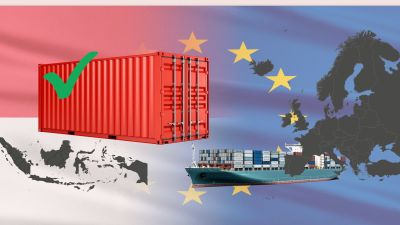The trade deal between the European Union and Indonesia shows that improving workers’ rights is no barrier to diversifying Europe’s supply chains.
The Comprehensive Economic Partnership Agreement (CEPA) signed yesterday includes binding and enforceable sustainable development chapters containing a clear non-regression clause on labour rights. This is crucial at a time when Indonesia ranks among the worst countries in the world for workers’ rights, according to the ITUC’s 2025 Global Rights Index.
It comes in stark contrast to the lack of protections for workers in the EU-Mercosur trade agreement proposals being put forward by the Commission, despite the fact that its own impact assessment says that people are subject to “slave-like working conditions.”
The European Trade Union Confederation (ETUC) calls on the Commission to be consistent in upholding workers’ rights in all trade agreements, as set out in its own 2022 Trade and Sustainable Development Review: "The power of trade partnerships: together for green and just economic growth".
ETUC Deputy General Secretary Claes-Mikael Stahl said:
"This agreement shows that geopolitics and the imperative to diversify Europe's supply chains do not trump the need to uphold workers' fundamental rights.
“These objectives must go hand in hand with a renewed commitment to hold the Indonesian's government to account on their responsibilities as members of the International Labour Organisation.
“The dispute settlement and supervisory mechanisms in the agreement offer trade unions leverage to seek improvements in the country and we intend to use these to the full.
“The Commission now needs to be consistent and apply these standards to all trade deals. The forthcoming deal with India must contain at least the same binding protections for workers’ rights.”

